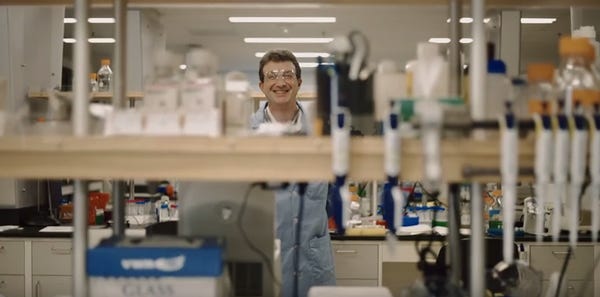December 8, 2015
Google's foray into the life sciences has grown into a sister spin-off company, with details continuing to come out about new technologies in the works.
Chris Newmarker
|
"Imagine a chemist and an engineer and a doctor and a behavioral scientist, all working together to truly understand health and to better prevent, detect, and manage disease," Verily says on its website. (Image courtesy of Verily) |
The "moonshot" medical device projects at the Google X lab have now become their own spin-off company under Google's Alphabet parent, with the life sciences business rebranding itself under the name "Verily" this week.
Established a few months ago, the company has a few hundred workers at Google's Mountain View, CA, campus, as well as small digs in Cambridge, MA, according to the website STAT.
As of Tuesday, Verily's website linked to about 16 job postings for everything from a clinical research neurologist to a regulatory affairs specialist to a mechanical engineer to a genomics sciences.
Besides chemists and engineers and more, there's even a philosopher on staff, according to media reports including STAT and Engadget. "We have to understand the 'why' of what people do," Verily CEO Andy Conrad, PhD, formerly chief scientific officer of LabCorp, told STAT.
Verily's website says the company's mission is to "bring together technology and life sciences to uncover new truths about health and disease." It touts life sciences projects that Google has previously disclosed, including efforts to create a glucose-reading contact lens in partnership with Novartis. Joe Jimenez, the CEO of Novartis, has even said there are plans to start testing the "smart" contact lens technology on humans next year.
Indeed, verily is Verily is describing itself as a kind of life sciences innovation factory, using Google's technological know-how to give the field a boost. A promotional video for the company encourages all types of companies, including traditional medical device companies, to get involved.
"Our multidisciplinary teams have access to advanced research tools, large scale computing power, and unique technical expertise. We work with partners from across the industry and many fields of research to develop new technology, launch studies, and start companies," the company says on its website.
A recently disclosed U.S. patent application gives a hint that there could be more interesting announcements down the road. The application, filed in 2014, describes a system for needle-free drawing of blood.
Another recent patent application described a laser ablation device with an active tracking system that allows the laser to work even when a patient is moving. Such a surgical laser device could prove helpful when it comes to the partnership Google forged early this year with Johnson & Johnson's Ethicon subsidiary to advance the field of surgical robotics
Learn more about cutting-edge medical devices at MD&M West, February 9-11 at the Anaheim Convention Center in Anaheim, CA. |
Chris Newmarker is senior editor of Qmed and MPMN. Follow him on Twitter at @newmarker.
Like what you're reading? Subscribe to our daily e-newsletter.
About the Author(s)
You May Also Like



